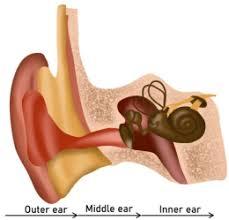Notifications

8 minutes, 31 seconds
-31 Views 0 Comments 0 Likes 0 Reviews

Vertigo is a common yet unsettling condition that makes individuals feel as if their surroundings are spinning or tilting. While several factors can contribute to vertigo, inner ear problems are among the most frequent vertigo disease causes. The inner ear plays a crucial role in maintaining balance, and any disruption in its function can lead to dizziness, imbalance, and nausea.
Understanding the connection between inner ear disorders and vertigo can help in identifying symptoms early and seeking appropriate treatment. Additionally, since chronic vertigo conditions may require medical intervention, having critical illness insurance and the best family health insurance can be beneficial in covering healthcare expenses.
The inner ear plays a crucial role in maintaining balance and spatial orientation through a complex system known as the vestibular system. This system comprises three main components: the semicircular canals, the utricle and saccule, and the vestibular nerve. The semicircular canals are three fluid-filled looped structures that detect head movements, while the utricle and saccule sense linear movements and gravitational changes. The vestibular nerve connects the inner ear to the brain, transmitting essential balance-related signals. When functioning properly, these components work together to send accurate information to the brain about head position and movement. However, any disruption or dysfunction in this system can lead to false signals, resulting in dizziness, imbalance, and vertigo.
BPPV is the most common cause of vertigo and occurs when tiny calcium particles, known as canaliths, become dislodged and float into the semicircular canals. This disrupts normal balance signals, causing dizziness when the head moves.
Symptoms of BPPV:
Sudden spinning sensation triggered by head movements
Episodes lasting from a few seconds to a few minutes
No associated hearing loss or pain
BPPV is more common in older adults and can sometimes be triggered by head injuries or prolonged bed rest.
Meniere’s disease is a chronic condition caused by an excess buildup of fluid in the inner ear. It leads to repeated vertigo attacks along with other symptoms.
Symptoms of Meniere’s Disease:
Intense vertigo episodes lasting from 20 minutes to several hours
Ringing in the ears (tinnitus)
Hearing loss that may worsen over time
Ear fullness or pressure
The exact cause of Meniere’s disease is unknown, but it is believed to be linked to viral infections, allergies, and genetic factors. Since it can significantly impact daily life, having critical illness insurance can help cover treatment expenses.
Vestibular neuritis and labyrinthitis occur when the inner ear or vestibular nerve becomes inflamed, usually due to a viral infection.
Vestibular Neuritis affects only the balance system.
Labyrinthitis affects both balance and hearing.
Symptoms:
Sudden onset of severe vertigo
Nausea, vomiting, and difficulty walking
Hearing loss (only in labyrinthitis)
Symptoms may last for days or weeks, and recovery often requires vestibular rehabilitation therapy.
A perilymph fistula occurs when a small tear or abnormal connection forms between the inner ear and middle ear, leading to fluid leakage. This can happen after head trauma, barotrauma (pressure changes), or heavy straining.
Symptoms:
Dizziness and vertigo
Sensitivity to loud noises
Ear pressure and imbalance
This condition often requires medical intervention, and in some cases, surgery may be needed.
An acoustic neuroma is a benign tumour that develops on the vestibular nerve. Although it grows slowly, it can interfere with balance and hearing functions over time.
Symptoms:
Gradual hearing loss in one ear
Imbalance and mild vertigo
Tinnitus (ringing in the ear)
Since this condition can require surgery or radiation therapy, having the best family health insurance ensures access to specialised care.
People with migraines can experience vertigo as a symptom, even without a headache. This is known as vestibular migraine and can be triggered by stress, hormonal changes, and certain foods.
Symptoms:
Dizziness lasting from a few minutes to hours
Sensitivity to light and noise
Nausea and balance issues
Managing migraines effectively can help reduce vertigo episodes.
While occasional dizziness is common, persistent or severe vertigo may indicate an underlying health condition that requires medical attention. Vertigo can be caused by inner ear disorders, neurological issues, or even cardiovascular problems, making it essential to monitor its frequency and severity.
If vertigo is accompanied by symptoms such as hearing loss, ear pain, or ringing in the ears, it could be a sign of conditions like Meniere’s disease or an inner ear infection. Additionally, episodes that last for extended periods and interfere with daily activities should not be ignored, as they may point to more serious vestibular disorders.
Other concerning symptoms include slurred speech, weakness, confusion, or difficulty coordinating movements, which could indicate a neurological issue, such as a stroke. Moreover, if you have a history of head trauma or infections before experiencing vertigo, it is important to consult a doctor to rule out any complications.
Early diagnosis and appropriate treatment can help manage vertigo effectively, prevent complications, and improve overall quality of life. Seeking timely medical advice ensures that the root cause is identified and treated, allowing you to regain stability and well-being.
Vertigo, especially when caused by inner ear disorders like BPPV, Meniere’s disease, or vestibular neuritis, can significantly impact daily life, making simple activities like walking or driving difficult. While treatment options vary based on the underlying cause, timely medical intervention is crucial for effective management. However, frequent doctor visits, diagnostic tests like MRIs and CT scans, and long-term treatments can become financially burdensome.
Having a comprehensive health insurance plan, such as Niva Bupa’s Best Family Health Insurance, ensures that you receive timely and quality medical care without worrying about expenses. From covering specialist consultations and diagnostic procedures to hospitalisation and rehabilitative therapies, Niva Bupa provides extensive coverage, allowing you to focus on recovery. If you experience persistent vertigo symptoms, seeking professional medical advice along with the right insurance plan can help you manage the condition with confidence and financial peace of mind.

